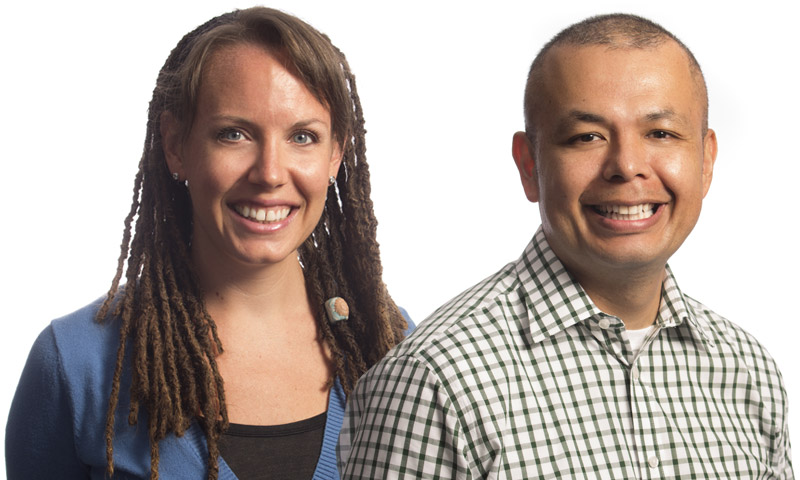
Cal State Fullerton mathematics educators are joining the Association of Public and Land-grant Universities and other institutions nationwide in an initiative to help undergraduate students pursuing STEM degrees succeed in introductory calculus courses.
CSUF is among 12 partner universities selected to work together to strengthen undergraduate precalculus and calculus instruction. The National Science Foundation is supporting the project, known as “SEMINAL: Student Engagement in Mathematics Through an Institutional Network for Active Learning,” with a $3 million, five-year grant. CSUF is receiving $93,300 for its project, directed by Alison S. Marzocchi and Roberto Soto, both assistant professors of mathematics.
The APLU initiative will place emphasis on helping underrepresented students succeed in introductory math courses that are foundational in science, technology, engineering and mathematics disciplines, and often a common roadblock to a STEM degree. The goal is to develop and adopt “active learning” instruction models that can work at any institution, according to APLU.
At CSUF, Marzocchi and Soto will lead fellow mathematics faculty members in professional development activities to build their knowledge about active learning strategies for calculus lessons. Active learning is a proven way to help more students achieve greater pass rates in challenging calculus courses, often referred to as “bottleneck” courses.
Active learning in mathematics involves student discovery and inquiry, where the majority of class time is spent with students often working in groups, cooperatively engaging in mathematical activities, while the teacher facilitates, Soto explained.
“This effort will lead to more students getting involved in immersive, STEM-related experiences and increase students’ ability to make progress in their STEM major and toward graduation,” Marzocchi added.
Active learning in mathematics also is the most effective way to teach mathematics and has been shown to improve persistence in mathematics, and can foster important peer relationships, build a sense of community and lead to better understanding of the material, Soto pointed out.
This effort dovetails with the California State University’s Graduation Initiative 2025, which sets graduation goals for CSU campuses, including CSUF.
“As a result, students will be able to graduate in a timely manner with the problem-solving skills necessary to contribute to society, thus helping to meet the objectives of the CSU’s Graduation Initiative 2025,” Soto said.
CSUF was selected for the project from a pool of 47 institutions nationwide and is a member of Washington, D.C.,-based APLU. The research, policy and advocacy organization is dedicated to strengthening and advancing the work of public universities in the U.S., Canada and Mexico.